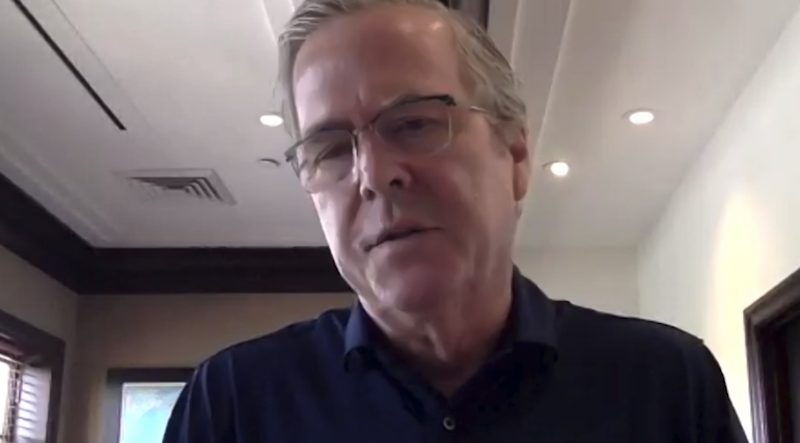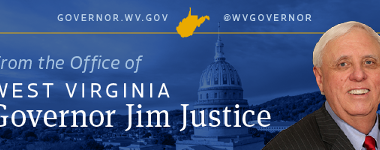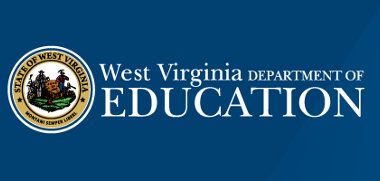By Lexi Browning
West Virginia Press Association
CHARLESTON, W.Va. — The eighth annual Education Alliance Education Summit kicked off Wednesday afternoon, marking the start of the three days of separate events featuring national and local experts, educators and advocates.
Themed ‘We Are All Connected,” this year’s summit will be hosted virtually over the course of three days — Oct. 14, 20 and 22 — to ensure West Virginian educators, advocates and policymakers can participate safely despite the ongoing coronavirus pandemic.
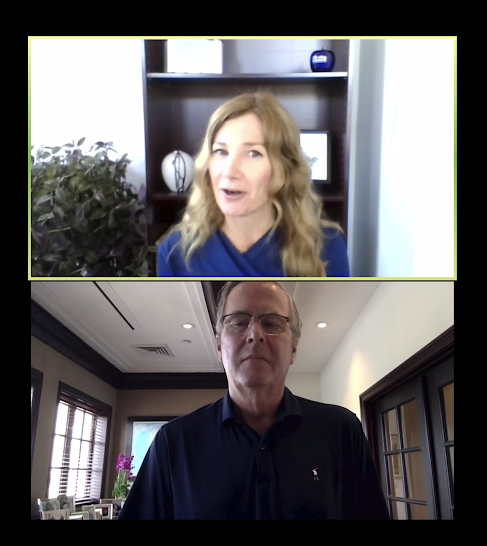
The first session, Early Literacy, included former Florida Governor Jeb Bush, followed by a virtual student expo presentation at Pineville Elementary School in Wyoming County, and a discussion with speakers Kymyona Burk, policy director for early literacy at ExcelinEd, and Monica DellaMea, executive director of the West Virginia Department of Education.
ExcelinEd, founded in 2008 by President and Chairman Bush, aims to support students in early learning, educational development and career preparation.
In his introductory message, Bush spoke to the significant technological and geographic gaps across the nation that could greatly affect students. From rural American school districts lacking access to broadband to southern coastal districts facing an unpredictable hurricane season, the unique challenges districts are facing have been exacerbated by the ongoing coronavirus pandemic.
“Education has to go on,” Bush said. “If we go two years without accountability, particularly for lower income kids, the gaps that exist will be devastating for their lives.”
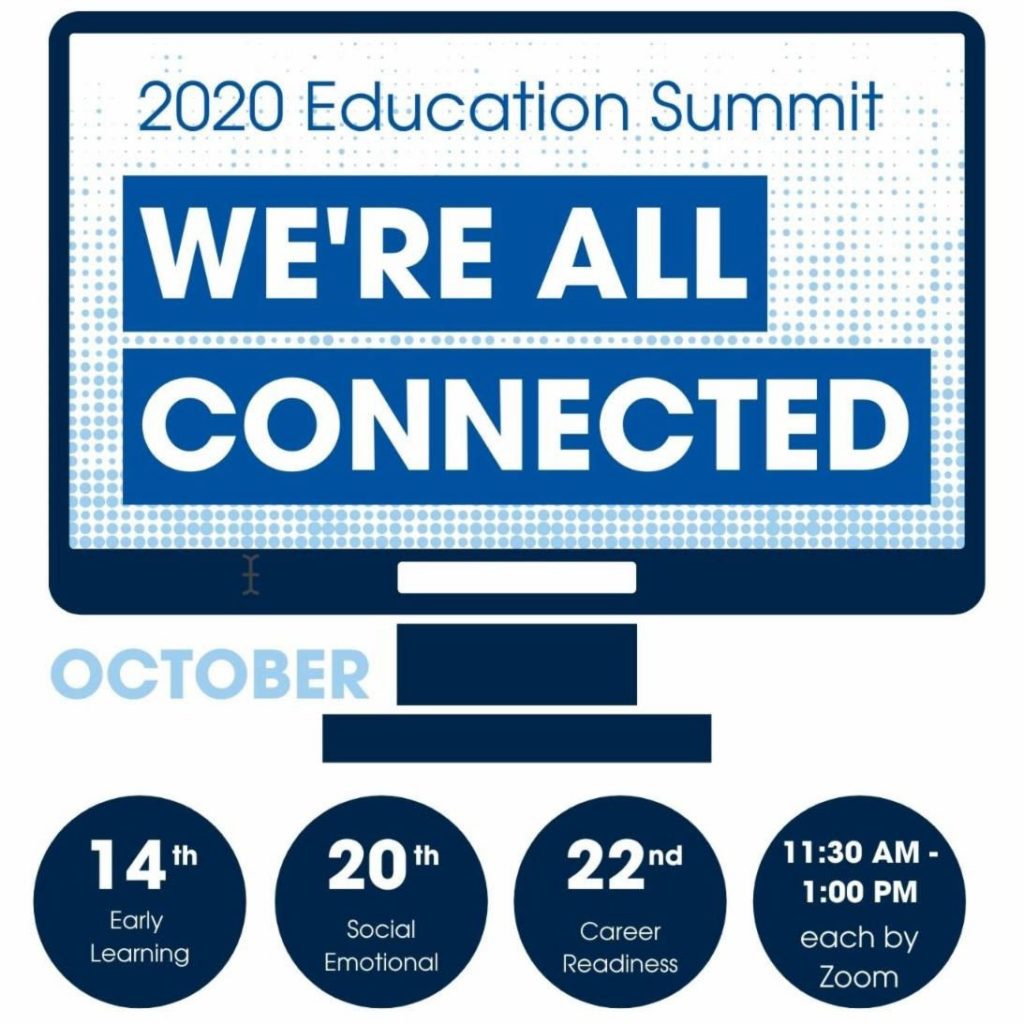
Last year marked the 20th anniversary of Bush’s education reforms in Florida, which aimed to prepare students who were falling behind. Two decades later, the data has helped determine how literacy rates can directly impact a student’s future.
“Florida was ahead of the game as it relates to the collection of data, so you can track a student’s outcome, Pre-K (through) 12 and that outcome — college-level, their credits, whether they graduated and track their income level and jobs. We’ve had enough time for all of that to become clear. Six years ago we had 250,000 kids that graduated from high school capable of going to college that otherwise wouldn’t have if we’d stayed the same. You can move the needle if you stick with it and have dogged determination.”
Preparing students for success — and a career or college — has the potential to save a life, Bush said.
“I think we need to move away from this idea that you’re tracking someone toward a technical career or college and meld them together and give them the optionality of both,” Bush said.
Though Bush said many may have considered his suggestions for improving Florida’s education system “radical” when he entered office in 1999, he felt that accountability was needed for students, educators and schools and that incentives should be offered for students who meet and surpass expectations.
“Even more so now than when I ran in 1998, it is the path forward for people to have the chance to rise up,” Bush said. “You have to have a high quality education to be successful in life.”
To ensure all students have access to the best education possible, Bush called for states to bridge their digital divides by designating infrastructure to it, for schools to promote more career readiness and for communities to find ways to support their youngest residents as they build literacy skills.
Bush said he worked with the local organizations, including the Boys and Girls Clubs, to find more than 200,000 volunteers to help students improve their literacy skills. The earlier achievement gaps are narrowed, the better chance students can excel and thrive in their educational career, he said.
With technological advancements brought on by the pandemic, Bush encouraged educators and advocates to take advantage of the new tools available.
“We’re living in 2020, and the innovation has exploded into our lives with the combination of big data analytics, artificial intelligence, 5G. This stuff is not going to go away, so we should embrace the things that can improve the educational experience, not view it as a threat,” Bush said.
Kara Halsey-Mitchell and Rebecca Farley of Pineville Elementary School hosted the brief student expo, during which they highlighted the value of the West Virginia Blue Ribbon Book Club while offering a virtual glimpse into a first-grade classroom reading.
The Blue Ribbon Book Club was founded by the West Virginia Department of Education in collaboration with Marshall University’s June Harless Center and the Dollywood Foundation. The initiative has provided 198,000 books to children in West Virginia, Halsey-Mitchell said.
Burk and DellaMea, who led the second session, shared advice with attendees about ways they could challenge the “soon-to-be widening” achievement gap by focusing on early literacy. Burk encouraged states to take advantage of the $3 billion allocated by federal CARES Act funding to the Governor’s Early Education Relief Fund (GEER) for flexible educational support.
“We tend to think about our own space, our own school, our own district, our own state, but the truth is, across the country, in 2019, only 35 percent of our fourth-grade students and 34 percent of our eighth-grade students in the United States performed at or above NAEP [National Assessment of Educational Progress] proficient in reading. That shows us that regardless of how well we’re doing in our own districts and states, there’s so much work that needs to be done across the country. Reading is an educational and economic issue.”
Third grade is one of the most critical years for students, Burk said, because kindergarten through third grade marks the period where students learn to read, whereas fourth grade onward, they are reading to learn and gain knowledge.
Burk spoke to the significance of underdeveloped literacy skills. If a student lacks necessary literacy skills by third grade, Burk said, citing statistics from Begin to Read and the Annie E. Casey Foundation, it can decrease their chances of graduating high school, decrease job prospects and result in earning lower wages. She also shared insight from her own experiences boosting literacy in Mississippi, which followed many of the former governor’s leads toward improving early literacy rates.
“… 88 percent of our students who failed to earn a diploma were struggling readers, and it can be traced to how they performed in third grade,” Burk said. “The other statistics, especially thinking about our African-American students and our Hispanic students who aren’t reading proficiently in third grade are six times more likely to drop out or fail to graduate from high school. If you’re a minority and low income, you’re eight times more likely to drop out.”
When it comes to strengthening literacy skills, Burk said, it’s necessary to have support and funding at local, state and national levels. By simultaneously incorporating reading coaches and more reading science training for teachers, engaging students’ families and evaluating student performance along the way, educators can determine where attention is most needed.
“We are in this together as we all find ways to improve literacy outcomes and improve the quality of life for our students,” Burk said.
Burk encouraged attendees to be mindful with themselves and their children during the unprecedented times.
“Grant yourself some grace,” Burk said. “It’s frustrating with other economic issues and challenges that families are facing, and families want the best for their children. Especially those who are assisting their children, even our youngest learners who have learned to read at home, grant yourself some grace.”
Additionally, for educators and guardians, she recommended teaching children to be organized by making to-do lists and keeping track of assignment deadlines.
Instructional gaps in learning can appear very early on, said DellaMea as she cited a recently-completed West Virginia-based study created in collaboration with the National Institute for Early Education Research that measured the differences between students who attended universal Pre-K and those who did not. Finding the deficits early on in each community and involving families in the learning process is critical, she said.
“Weaving family engagement throughout is more important than ever,” DellaMea said. “You must engage that home to school connection, especially as we have children who are learning virtually. Young children are not independent learners, so you have to have that partnership with the family.”
But DellaMea said she’s confident in local level decision-making because those educators and advocates are more closely involved with students, their families and their situations.
“We know that at a state level, the counties, the principals, the schools, the teachers, they know the families,” DellaMea said. “While we can provide a system of support and infrastructure, it’s really up to a local level to determine what that looks like.”
She also emphasized the critical importance of community leaders and businesses getting involved when possible to help students.
“There are lots of opportunities to get engaged in your local community, and we have a lot of rural areas and a lot of areas that don’t have the industry or economy that other areas in our state have necessarily, but that doesn’t mean that there aren’t partners who are out there or people [who are] willing to assist in any way,” DellaMea said.
The second session in the Education Summit series, Social Emotional, will take place Oct. 20 from 11:30 a.m. to 1 p.m. with featured guests Rey Saldaña, president and CEO of Communities in Schools, and Pamela Cantor, M.D., founder and senior science advisor for Turnaround for Children,
The third session, Career Readiness, will take place Oct. 22 from 11:30 to 1 p.m. with featured guests Katherine Resteiner, chief of staff of Intel Capital, and Daneilla Mezera, senior policy fellow for ExcelinEd.
Attendees can register for each of the Zoom webinars at www.educationalliance. Teachers and principals can register for free.
Regional sponsors include Appalachian Power, Toyota Motor Manufacturing West Virginia, EQT, Bowles Rice LLP, First Energy Foundation, Jackson Kelly PLLC, Northeast Natural Energy, ZMM Architect & Engineers, United Bank, AT&T, Dominion Energy, Mountain Health Network, West Virginia Development Office and West Virginia Economic Development Council.


